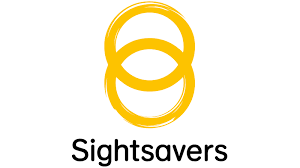In a groundbreaking initiative aimed at dismantling systemic barriers and unlocking the potential of Persons with Disabilities (PWDs) in Nigeria’s burgeoning digital economy, Sightsavers, in partnership with the Digital Bridge Institute (DBI), has graduated 25 PWDs from a comprehensive digital skills training programme under its IT Bridge Academy.
The initiative, which has now completed its second cohort, represents a significant leap toward inclusive technological empowerment. Over the course of nine transformative months, participants underwent rigorous training in digital skills based on the globally recognized Cisco Certified Network Associate (CCNA) curriculum. The programme went a step further to integrate inclusive learning accommodations such as screen readers, sign language interpreters, and flexible pacing, ensuring that every participant—regardless of their disability—could learn, grow, and thrive.
The graduation ceremony, held at the DBI campus, was filled with celebration, inspiration, and powerful calls to action. For the graduates, the moment marked not just the end of a training journey, but the beginning of a new chapter filled with confidence, skills, and possibility.
Emeka Nzeih, DBI’s Head of Learning and Development, described the programme as a model for transforming Nigeria’s tech landscape through inclusion.
“PWDs are often a neglected sector of society. Among them are highly intelligent individuals who only lack access to tailored opportunities. This programme recognizes their abilities and arms them with the tools to break into the digital space with pride,” Nzeih said.
He revealed that several graduates from the first cohort have already secured internships at a major telecom company in Nigeria and are performing on par with their peers, proving that given the right environment, PWDs are capable of excelling in the most competitive sectors.
Genevieve Ikejiofo, Head of Campus at DBI, emphasized the broader national relevance of the initiative, citing the government’s growing emphasis on ICT development and youth empowerment.
“With this training, our graduates are not only employable—they are equipped to become tech entrepreneurs and freelancers. We urge more development partners and the private sector to support such inclusive initiatives as Nigeria moves toward a technology-driven economy,” she said.
Delivering a stirring message of commitment and advocacy, Dr. Joy Shuaibu, Country Director of Sightsavers Nigeria, reaffirmed the organization’s unwavering dedication to inclusion.
“Sightsavers has been in Nigeria for 72 years, fighting preventable blindness and advocating for equal access to opportunities for persons with disabilities. Today’s graduation is a testament to what happens when we believe in inclusion—not as a favour, but as a right,” she stated.
The IT Bridge Academy isn’t just about teaching digital skills—it is a deliberate response to long-standing exclusion. For many of the participants, this programme was their first exposure to structured ICT training. Now, they leave the academy with world-class certifications, entrepreneurial potential, and a renewed sense of purpose.
In a heartfelt speech on behalf of DBI’s President, Mr. David Daser, Head of Special Programmes, Viola Asika Usoro, highlighted how the initiative fits squarely within the government’s Renewed Hope Agenda.
“President Tinubu’s agenda is clear—no one should be left behind. This initiative embodies inclusive youth empowerment, providing internationally recognized certifications and tangible pathways for PWDs to thrive in the digital economy. These graduates are not tokens; they are tomorrow’s tech leaders,” she declared.
The significance of the programme also lies in its holistic approach. Beyond technical skills, the participants received mentorship, soft skills training, and exposure to employment pathways in Nigeria’s rapidly evolving ICT sector. The hope is to create a ripple effect—where more organisations adopt inclusive training models, and where disability is no longer a barrier to innovation or productivity.
For many of the newly minted graduates, the training has been life-changing. One participant, who is visually impaired, shared that learning to navigate complex coding platforms with a screen reader was initially daunting but has now opened doors she never thought possible. Another, who uses a wheelchair, described the course as “a rocket launcher” for her freelance tech aspirations.
As the applause echoed through the DBI hall, it became clear: this isn’t just a graduation ceremony—it’s a declaration. A declaration that inclusion works, that PWDs belong in tech, and that the future of Nigeria’s digital economy must be built on access, equity, and empowerment.
If this momentum is sustained and replicated, Nigeria may soon see a generation of digitally skilled PWDs leading startups, managing tech hubs, and transforming the narrative—from exclusion to innovation.


